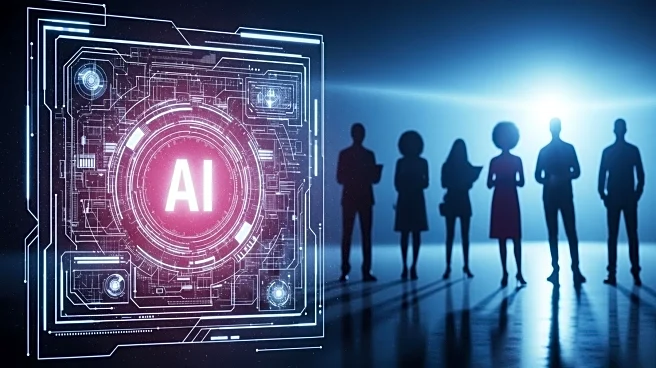What's Happening?
Salesforce CEO Marc Benioff has announced the reduction of 4,000 support roles within the company, attributing this change to the implementation of AI agents. These AI agents automate tasks such as customer service, employee support, and productivity enhancements, allowing Salesforce to operate with fewer human resources in support roles. Benioff discussed this development on 'The Logan Bartlett Show,' highlighting the efficiency gains achieved through AI integration. Salesforce has redeployed hundreds of employees into other areas like professional services, sales, and customer success, reflecting a shift in workforce dynamics. Despite concerns about job security, Benioff emphasized that AI is intended to work in partnership with human employees, not replace them entirely.
Why It's Important?
The use of AI in Salesforce's operations underscores a significant trend in the tech industry, where companies are increasingly relying on AI to streamline processes and reduce costs. This development has implications for workforce structures, particularly in entry-level positions that are more vulnerable to automation. While AI offers potential benefits in terms of efficiency and productivity, it also raises concerns about job displacement and the future of various professions. Salesforce's approach highlights the need for businesses to balance AI integration with human labor, ensuring that technology complements rather than replaces the workforce. The broader adoption of AI across industries could lead to shifts in employment patterns and economic strategies.
What's Next?
As AI continues to evolve, companies like Salesforce are likely to explore further integration of AI technologies while maintaining a human workforce. The ongoing dialogue among tech leaders emphasizes collaboration between AI agents and human employees, rather than complete automation. Salesforce's strategy may serve as a model for other companies looking to leverage AI while preserving human roles. Additionally, the expansion of AI applications in sectors such as government and education could create new opportunities and challenges, influencing public policy and economic strategies.
Beyond the Headlines
The integration of AI in the workforce raises ethical and cultural questions about the value of human labor and the role of technology in society. As AI becomes more prevalent, traditional job structures may shift, requiring new skill sets and impacting education and training programs. The concentration of AI companies in tech hubs like San Francisco could influence local economies and real estate markets, as businesses compete for talent and office space. The ongoing transformation of workforce dynamics may lead to long-term changes in employment patterns and societal norms.








